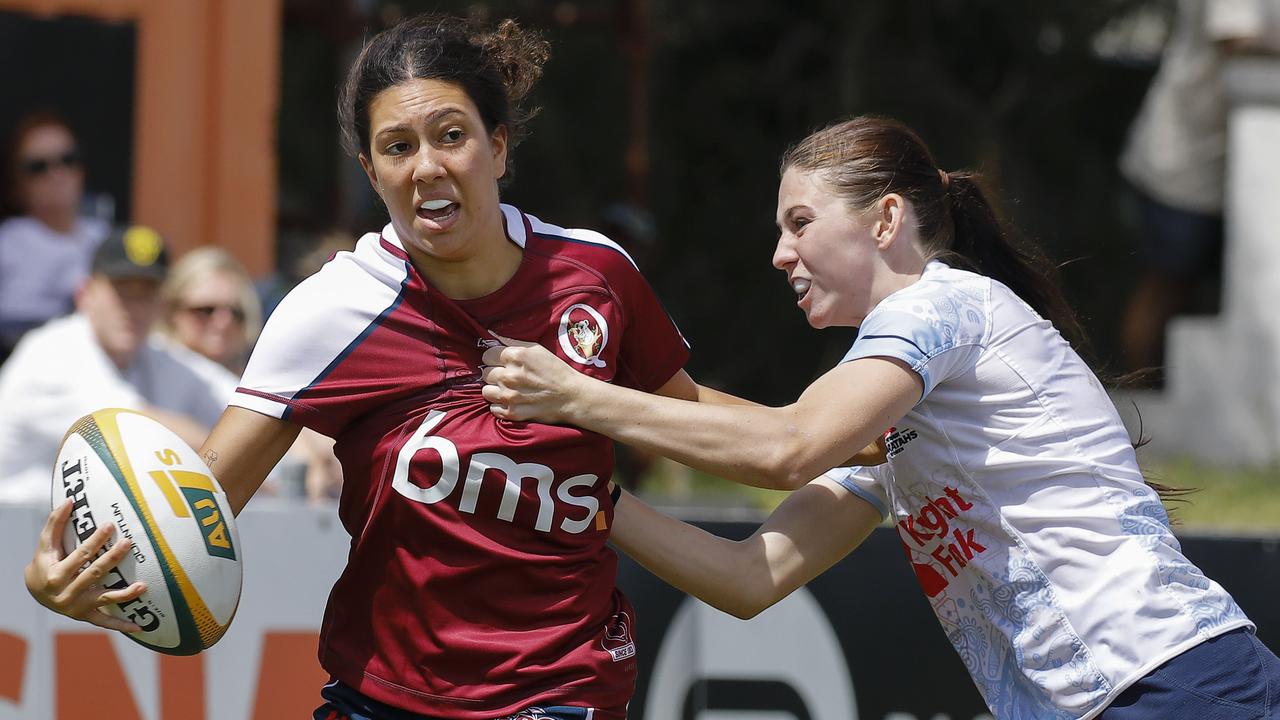Tokyo Olympics 2021: Craig Mottram’s legacy bears fruit in Stewart McSweyn and Peter Bol
Australia’s middle-distance revolution is making the rest of the world sit up and take notice. This is the 15-year journey that has earned global respect and made other countries nervous.
Olympics
Don't miss out on the headlines from Olympics. Followed categories will be added to My News.
Craig Mottram knew he’d arrived when his African opponents gave him the nickname, Big Mzungo.
It was the ultimate mark of respect. Normally a tall skinny white guy from Australia wouldn’t capture their attention, let alone be acknowledged as being worthy of being on the same track.
But what Mottram did was break the mould. He showed he wasn’t scared of the Kenyans and the Ethiopians who were so used to battling out between themselves at major championships.
At the 2005 world championships in Helsinki he went where no white man had gone for decades, breaking up the African medal monopoly by winning a bronze medal in the 5000m.
The following year at the Melbourne Commonwealth Games he was a part of one of the greatest races this century, a two-man war with rising Kenyan star Augustine Choge that lit up the MCG.
It was an unforgettable moment - even with Mottram coming out second - and the impact it had on the next generation is now bearing fruit 15 years on.
Stewart McSweyn is the 2021 version of the Big Mzungo (it means big white man).
The key difference is where Mottram was doing it solo, McSweyn has some helpers - both men and women - who are part of a middle-distance revolution in Australia that is making the rest of the world sit up and take notice.
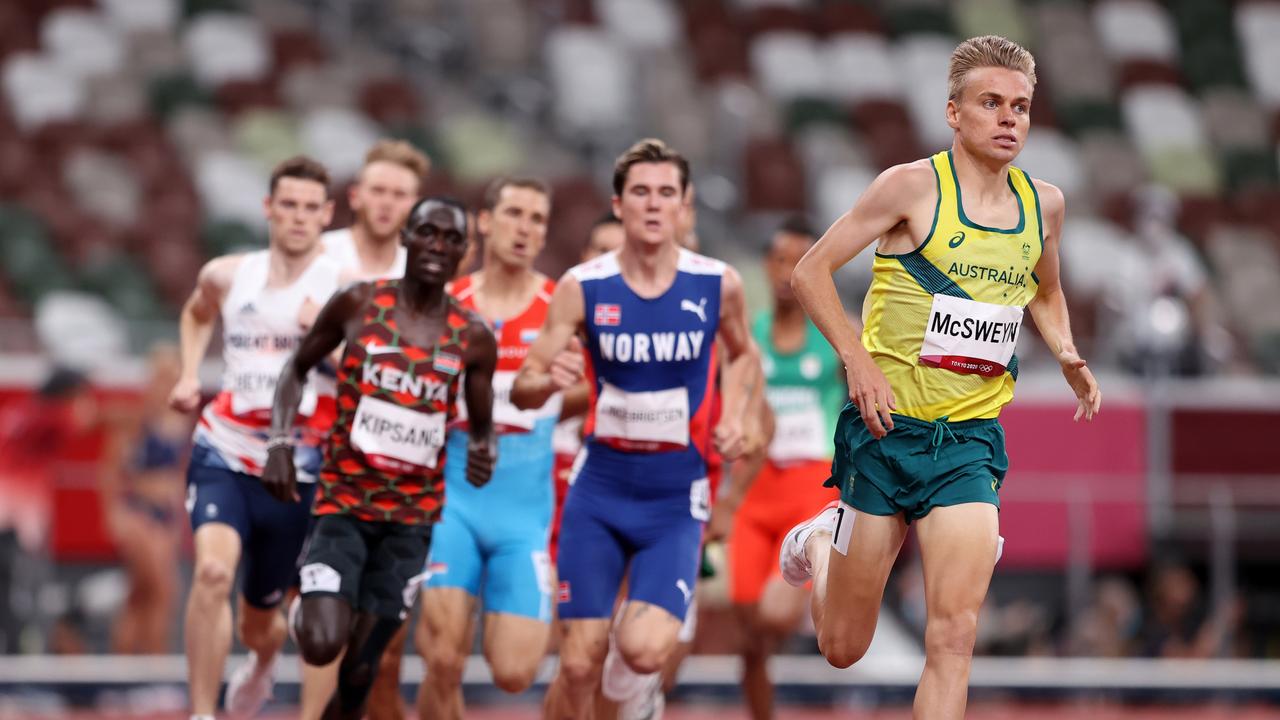
None more than what Peter Bol has done in Tokyo. He didn’t just show he belonged, he nearly beat the rest of the world, finishing fourth in an epic 800m Olympic final.
There are two women in the 1500m final on Friday night - Jessica Hull and Linden Hall - while McSweyn had company in the 1500m semi-finals in the form of Olympic debutant Oliver Hoare.
And there is a strength in numbers scenario playing out with for the first time Australia having a full contingent of three competitors in both the men and women across the 1500m, 5000m, 3000m steeplechase and marathon.
McSweyn, 26, is the poster boy for this movement and has dealt with Mottram comparisons from the time he burst onto the scene in 2019 by breaking the national 10,000m record.
He has since added Mottram’s mile record and last month lowered his own 1500m record in Monaco.
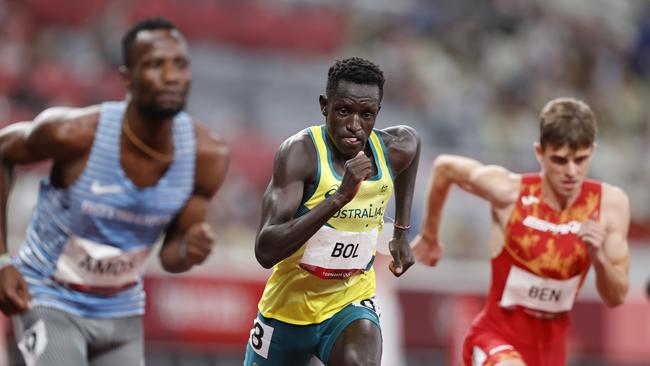
The King Island product has made a habit of turning up on the lucrative Diamond League circuit in Europe and not only holding his own with the Africans, but taking some handy scalps which is why he has no fears about what he faces in Tokyo.
“I think going into every race I can win,” McSweyn says. “Even racing the top guys like Tim Cheruiyot and Jakob Ingebrigtsen, I go into the races still thinking I can beat anyone I’m racing against if I run to the best of my abilities.
“I think it is an accumulative effect, I feel like I am growing in confidence which happens when you kind of start doing a little bit better.”
The other important factor here is the US College assembly line that is attracting Australian junior athletes and spitting them out as more rounded, battle-ready, world-class operators.
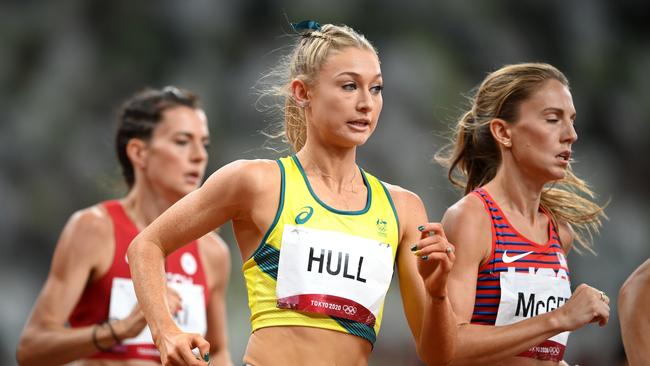
Nine athletes in the Tokyo Olympic team have cut their teeth in the collegiate system.
Hull is a perfect example. She made the move from Wollongong in 2015 to take up a scholarship at the University of Oregon.
She became a multiple time All-American with the Ducks and a surprise NCAA champion in the 1500 in 2018.
Three weeks after graduating into the professional ranks she qualified for Tokyo by running the fourth fastest 1500m in Australian history.
In 2020 Hull secured three outdoor Australian records in six weeks and was the first Australian woman to ever hold the treble of 1500m, 3000m and 5000m national records at the same time.
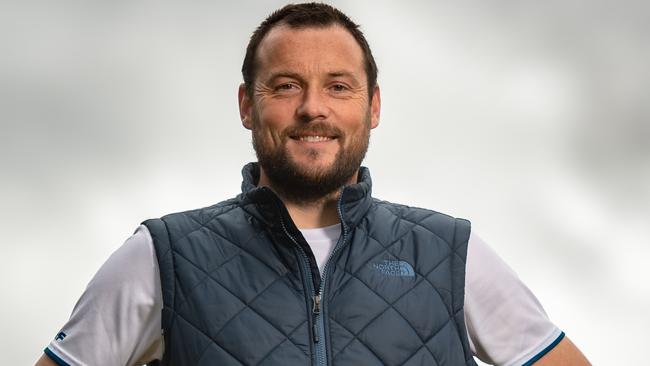
She wouldn’t be half the runner she is without that US College experience, something that Hoare, who spent four years at the University of Wisconsin, backs up.
A perfect example came in the 1500m heats in Tokyo for Hoare who found himself in a rough house affair where there were multiple falls.
“I’m used to a bit of a rough race from my college days, it’s supposed to be a non-contact sport but it’s not,” he said .
“I made a lot of sacrifices to go to the United States, leave my family and friends for another country. I knew it was the right sacrifice for me to develop into one day representing my country and I believe that sacrifice is paying off right now.”
Women
800m: Catriona Bisset, Morgan Mitchell
1500m: Georgia Griffith, Linden Hall, Jessica Hull
5000m: Izzi Batt-Doyle, Rose Davies, Jenny Blundell
Marathon: Sinead Diver, Ellie Pashley, Lisa Weightman
Men
800m: Peter Bol, Charlie Hunter, Jeff Riseley
1500m: Jye Edwards, Ollie Hoare, Stewart McSweyn
5000m: Morgan McDonald, Dave McNeill, Patrick Tiernan
10000m Patrick Tiernan
Marathon: Liam Adams, Brett Robinson, Jack Rayner





